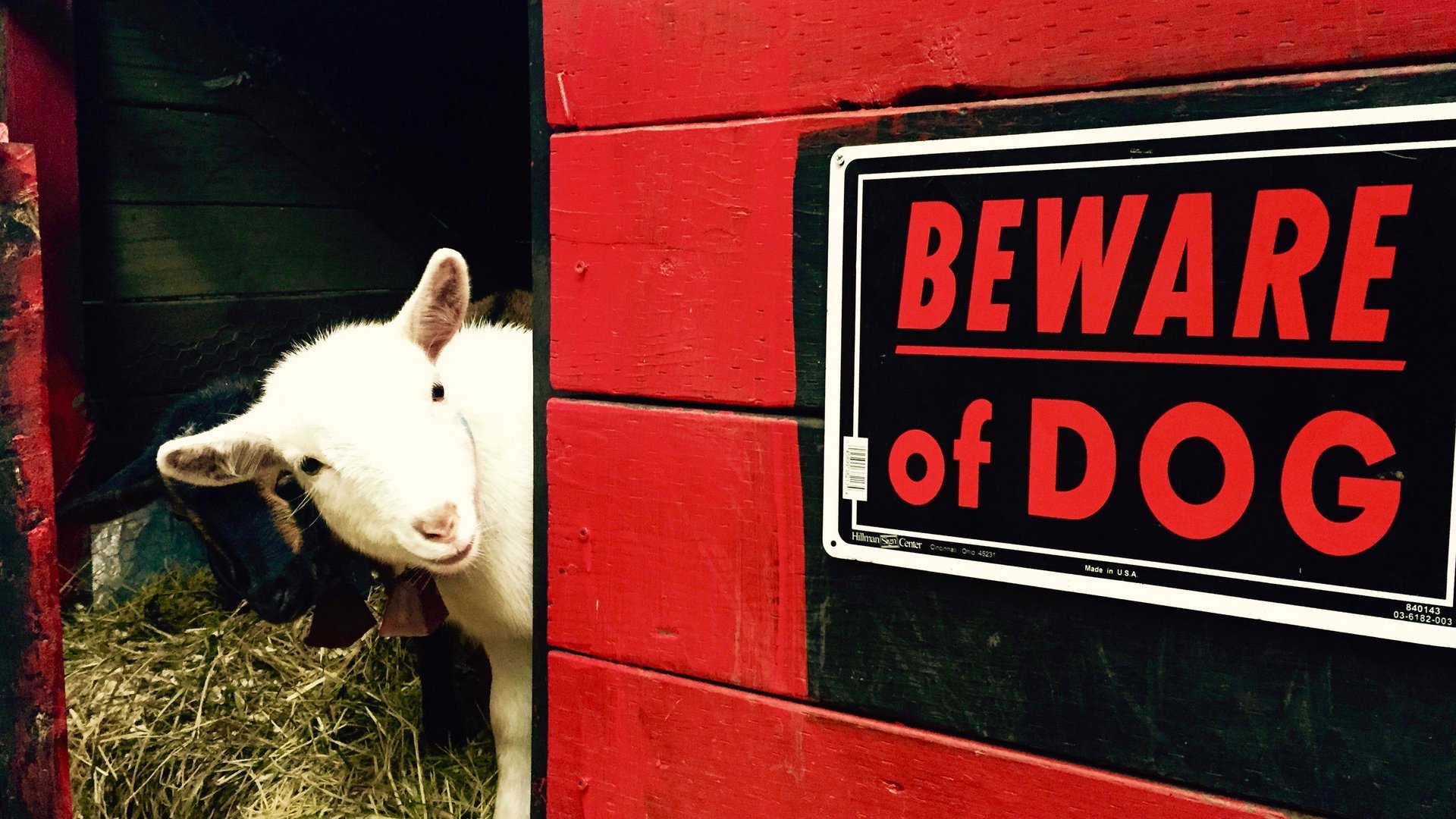Doable daily experiments to test the boundaries of your independence
High in the unincorporated Santa Cruz mountains in California, deep in the redwood forest, is a tiny cabin. It was built in 1950 for vacationers, and sits precariously over a hill on crooked wooden stilts. This is where I work and live with a man, a dog, two cats, and two dwarf goats who are housed under the porch.


High in the unincorporated Santa Cruz mountains in California, deep in the redwood forest, is a tiny cabin. It was built in 1950 for vacationers, and sits precariously over a hill on crooked wooden stilts. This is where I work and live with a man, a dog, two cats, and two dwarf goats who are housed under the porch.
My address appears on maps. Still, you won’t find the place. It’s invisible and barely accessible. The entrance isn’t at the street but up and around many bends, down a treacherous dirt path and uneven stairway. Visitors are rare yet invariably stay longer than planned, lulled by the forest. I myself barely leave, though I’ve lived in many cities and loved them.
After Boston, New York, West Palm Beach, Tel Aviv, Jerusalem, Tokyo, and more, no one would predict they’d find me in a forest, including me. And I wouldn’t be here if I listened to my naysaying city-dwelling parents and spider-fearing friends.
But sometimes I don’t take the well-meaning counsel of loved ones. Each of my many new experiences teaches me who I am, what I need, and what I can do, and builds on those that came before. My experiments aren’t always successes, certainly not immediately, but they all offer lessons and bolster independence.
Do you
Life’s tough. You have responsibilities, problems, and dreams. If there’s another way to exist, you don’t know it. Yet you sense there is and that someone could show you. There is, and someone could. That someone is you, of course. Or, your independent self, a you who can pierce through the din.
In his classic essay Self-Reliance, Ralph Waldo Emerson wrote that we each have genius but few dare to believe or to trust themselves. We “should learn to detect and watch that gleam of light which flashes across [the] mind from within, more than the luster of the firmament of bards and sages,” he advised.
This is also known as “killing the Buddha.” The monk Shunryu Suzuki Roshi explained in Zen Mind, Beginner’s Mind that the instruction “kill the Buddha” keeps students looking inward and not at masters or sacred notions. “Kill the Buddha if the Buddha exists somewhere else,” he said.
A training program for independence
Still, independence isn’t built in a day, and no one is ever done with this process. Discover freedom—gently—by experimenting with it daily.
- Flex: Deconstruct ideas. Question everything, especially what you cherish. If you’re a romantic about marriage, break it down until it’s just a contract. Longing for children? Forget family Christmases, and think of all the world’s parents with broken hearts whose kids are in prison. At first it may hurt to pick at what’s nice, but think of it as intellectual strength training. Play with all ideas and fear none. What’s valuable won’t break with thought alone.
- Stretch: Move more. Walk to an extra stop to the subway each day, until you could get home with no transport. Take steps instead of elevators. Bike instead of driving. Develop spatial intelligence, strength, and confidence. Know your world well and you’ll have a sense of how to manage and do the same anywhere you may go.
- Shift: Do new things that scare you on the regular. Everyone falls into ruts, fearing experimentation and failure. Often we restrict ourselves unnecessarily, as I discovered this week when I wrote an experimental post in iambic pentameter and survived to write another day.
- Hone: Curb your reliance on beloved things. You needn’t swear off all stuff, but you can take breaks to ensure less you’re less needy. Just for a day, say, skip the cafe’s latte and delight in the bitter deliciousness of your office coffee. The point isn’t saving money, though you will: It’s about being a bit more free.
- Observe: Understand yourself. Practices like journaling and meditation reveal the nature of mind, thoughts, and emotions. Observe and gain self-mastery.
- Test: If you’re always in company, spend a day or hour alone, no tech. Being uncomfortable with yourself isn’t really an option in life, so you must face your mind with no one to confirm your existence, distract, or entertain you. Likewise, if you’re a homebody, go out, socialize, talk, mingle, and be in the world, even though you’d rather scurry back, alone.
- Disrupt: As you may have noticed, the idea here is to break rules, real and imagined, big and small. Have breakfast for dinner, drink coffee before bed, go off the grid. Flip the script and crack the code.
The truth
Be warned. You could discover that it’s you—and not your family, friends, or society—who has been holding you back all this time. In the Sufi literary masterpiece The Conference of the Birds, the Persian poet Farid ud-din Attar writes about a comfortable pharmacist abandoning shop and home for the road after he’s visited by an indigent traveler with the ultimate drug—the truth that we are free.
Ephrat Livni studies Zen in a tiny cabin in California’s redwood forest. Email her your questions about spirituality, ethics, and living a considered life in the digital age at [email protected]. She’ll report what the masters advise.